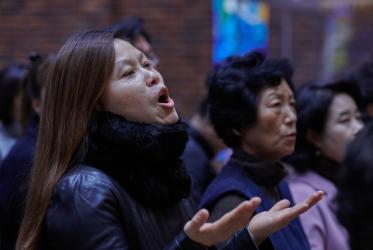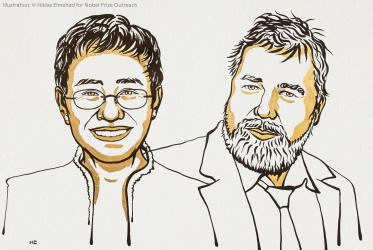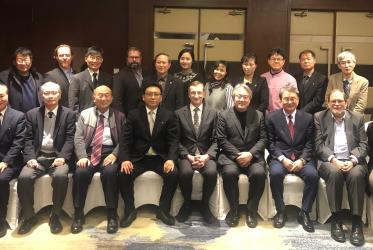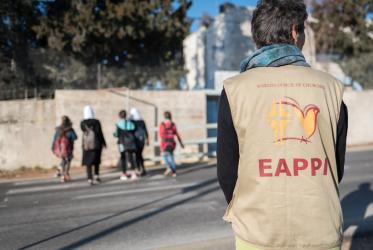Displaying 1 - 20 of 54
16 February 2023
WCC congratulates 2021 Nobel Peace Prize laureates
14 October 2021
“Re-visiting Arusha 2018 : Highlights of African Missiology”
13 February 2020
Desmond Tutu Conference Centre, Nairobi, Kenya - (Online)
Religious leaders keep vision of peace alive on Korean Peninsula
10 December 2019












